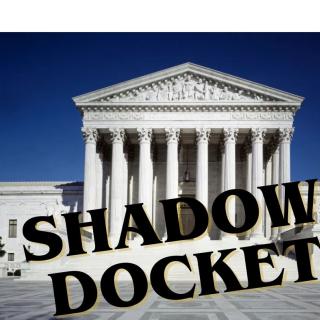Advertisement
Prime Minister Benjamin Netanyahu declared on July 25 that Israel has defeated the BDS movement. Ben White of Middle East Eye calls this claim “laughable.” A few days earlier, the Palestinian BDS National Committee posted a blog article that describes the accelerating growth of BDS despite Israel’s efforts to undermine it.
BDS (Boycott, Divestment, and Sanctions) is an economic strategy for pressuring Israel to end its occupation and colonization of Arab lands in Palestine. BDS supporters also want Israel to dismantle the Gaza Wall and recognize full equality for Arab-Palestinian citizens — ending what they see as a system of apartheid.
Israel and its supporters have been working hard to counter the BDS movement this year, holding anti-BDS conferences in Los Angeles in April and at the United Nations in May. U.S. legislators have jumped on board, introducing bills in the House and Senate to provide the states with a legal basis to prohibit state contracts with companies that engage in BDS activities.
So far 21 states have introduced anti-BDS legislation. These bills do not make boycott or divestment from Israel illegal, but according to Palestine Legal they would have a “chilling effect on protected speech.”
H.B. 476 was introduced in the Ohio House of Representatives on February 24 by Rep. Schuring and co-sponsored by House Speaker Cliff Rosenberger and minority leader Fred Strahorn. The bill would prohibit state agencies from entering into or renewing a contract with a company for supplies, equipment, or services unless the contract declares that the company is not boycotting or disinvesting from Israel, and will not for the duration of the contract.
The U.S. Supreme Court has repeatedly affirmed that government officials’ determinations about what views are acceptable cannot infringe on the First Amendment right to freely express political views.
Committee hearings on H.B. 476 were held in April and May. 32 people from across Ohio testified against the bill. Opponents believe that BDS is a moral and effective tactic for encouraging Israel to create policies that will allow all the people of the land to live with dignity, security, and peace.
OSU emeritus law professor John Quigley testified that H.B. 476 would make Ohio complicit with war crimes. The law would also “impede Ohio export efforts, particularly in Japan and Europe” and could not “be enforced in a consistent and lawful manner,” he told the House committee.
Sister Paulette Schroeder described the human rights abuses that she witnessed while working in Hebron with Christian Peacemakers. “I felt enraged when I saw Israeli right-wing settlers throw stones and they were not arrested, while Palestinian children were frequently sent to jail and then prison for up to 6 months for allegedly doing the same thing,” she said. “I saw old men and women disrespected at checkpoints. I saw teachers and small children on their way to school detained at checkpoints for up to three hours. I saw numerous instances of teenagers pushed against the walls, hands up, as settler children clapped and danced with glee. I saw enough human violence to fill any decent moral person with rage.”
“Boycotts are not only a powerful and effective tool in the pursuit of social justice, they are central to a functioning democracy. This legislation, in other words, would make Tom Paine roll over in his grave,” Case Western Reserve University law professor Ted Steinberg told the House committee. “One of the things I learned as a child in Hebrew school was that Judaism was founded on a commitment to social justice. What I see happening in Israel — extrajudicial killings, house demolitions, people incarcerated without being be charged, children in prisons, differential application of law, disregard for international law, and all of this done with the military and diplomatic support of the United States — makes a mockery of what I was taught Judaism was supposed to be about. I am opposed to this legislation, which seeks to reinforce the status quo in Israel — a place desperately in need of reform.”
H.B. 476 was passed out of the House Government Accountability and Oversight Committee with one dissenting vote by Rep. Mike Curtin. Rep. Curtin and Rep. Leland both expressed concerns about the constitutionality of the bill. The Ohio House has adjourned for the summer. H.B. 476 may go to the floor of the House when it reconvenes in early November.
To support the end of apartheid in Israel, the web site bdslist.org has a detailed list of products and companies to boycott.
Freedom to Boycott in Ohio is an alliance of peace and justice groups across the state organized to oppose H.B. 476. The coalition is urging Ohioans to contact their state representative and senators to voice their opposition to the bill during the summer recess. To get involved, follow postings on facebook.com/F2BOhio or send an email to F2BOhio@gmail.com.
“Israel has destroyed more homes, businesses and public infrastructure” in occupied Palestine in the first three months of 2016 “than in all of 2015,” The Electronic Intifada reported. These include “an $11-million farming project in the Jordan Valley, a $61,200 playground near Nablus and an elementary school serving a Bedouin community east of Jerusalem.”
Connie Hammond contributed extensive research to this article.



